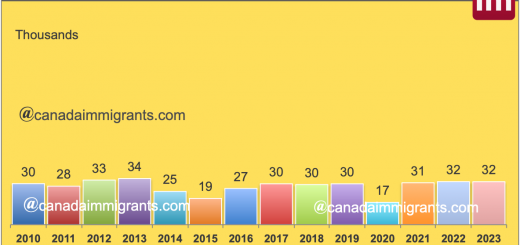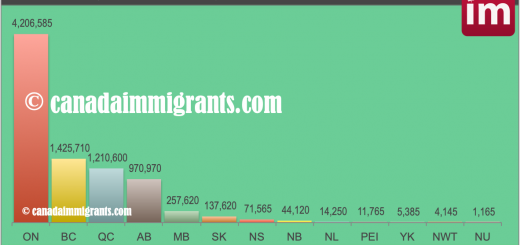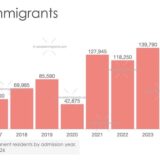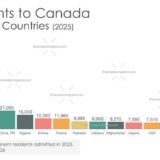Brazilian Immigrants to Canada
In 2022, 7,330 Brazilians admitted to Canada as permanent residents
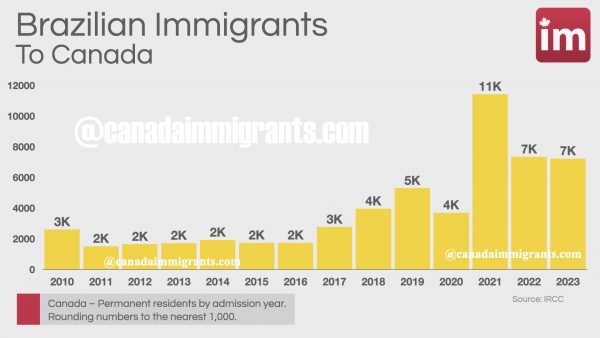
From 2018 to 2022, 31,690 Brazilians were admitted to Canada as permanent residents.
In recent years, Brazilian immigration to Canada has seen significant growth, driven by the pursuit of better economic opportunities, quality of life, and educational prospects. According to Canadian government data, the number of Brazilians granted permanent residency surged from 1,730 in 2016 to 11,420 in 2021, reflecting a growing trend. Many Brazilians are attracted to Canada’s structured immigration pathways, such as the Express Entry system and Provincial Nominee Programs, which prioritize skilled workers, as well as opportunities for international students to transition to permanent residency. Over 50% of Brazilian immigrants settle in Ontario, with significant communities in Quebec and British Columbia, contributing to vibrant cultural organizations and events like Brazilfest in Toronto. Despite tightened immigration policies in 2024, Canada remains a top destination for Brazilians seeking stability and career advancement, with 15,615 Brazilian students holding study permits in 2023.
From 2015 to 2019, 15,460 Brazilian citizens were admitted to Canada as permanent residents.
2016 Census
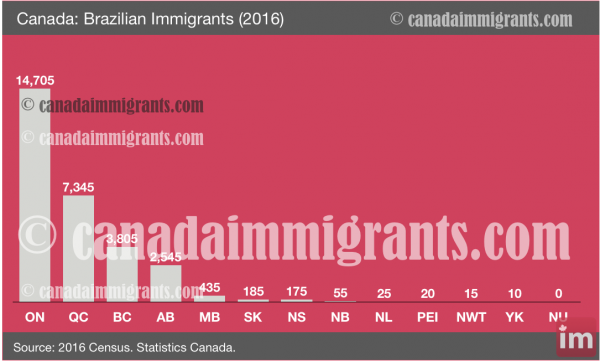
According to the 2016 Census, 29,315 Brazilian immigrants resided in Canada.
Brazilian immigrants in Canada (2011)
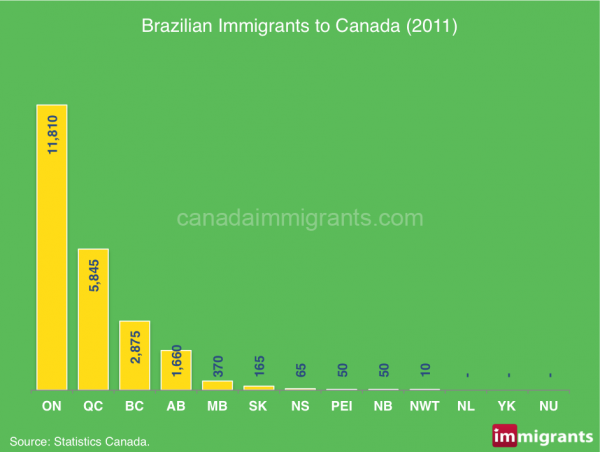
In 2011, the immigrant population comprised 20.6% of Canada’s population, so one in five people were immigrants.
In 2011, 22,900 immigrants from Brazil resided in Canada.
Nine out of ten Brazilians lived in three provinces: Ontario (11,810 or 52%), Quebec (5,845 or 26%) and British Columbia (2,875 or 13%).
Note:
We would like to point out that we used data from the National Household Survey (NHS) knowing that its quality is still under criticism because this survey was conducted on a voluntary basis, so its validity, reliability and comparability with other instruments, such as population censuses have become an issue. In fact, before the first release of the NHS results, Statistics Canada issued warnings and cautions when using the NHS data, so use this data prudently.


